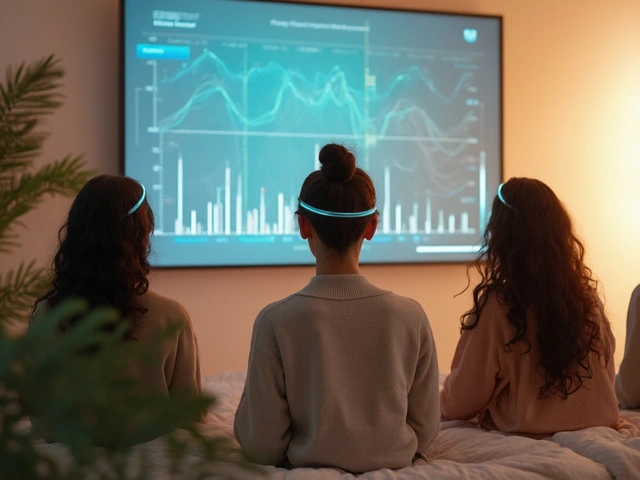Science of Aromatherapy: What Smell Does to Your Brain
Smell can change mood, sharpen focus, or help you fall asleep — fast. That’s not magic. It’s biology. The scents from essential oils travel straight to the olfactory bulb, which talks to the limbic system — the part of the brain that controls emotion, memory, and some body responses. That direct line explains why a few breaths of lavender or peppermint can feel powerful within minutes.
How aromatherapy affects the brain
When you inhale an essential oil, molecules bind to receptors in your nose. Those signals go to brain areas that regulate stress, mood, and hormones. Clinical trials show inhaled lavender can lower anxiety and improve sleep. Peppermint has been linked to quicker reaction times and improved alertness in short tests. Citrus scents often produce quick mood lifts. Still, effects vary by person, dose, and context. Scent works best as a short, targeted tool—not a cure-all.
Also know this: studies often compare oils to placebo or quiet rest. A portion of the benefit comes from expectation and ritual. That doesn’t make the results useless — it just means aromatherapy often works best when paired with breathing, sleep routines, or therapy.
Practical, evidence-based uses & safety
Want to try aromatherapy without guesswork? Here are clear, useful steps:
- For sleep or anxiety: try lavender in a diffuser for 30–60 minutes before bed. A couple of drops in a diffuser is usually enough.
- For focus or alertness: inhale peppermint briefly or use a single drop on a tissue during work sessions.
- For nausea: ginger or peppermint inhalation can help in the short term.
Topical use: always dilute essential oils in a carrier (fractionated coconut, jojoba). Aim for 1%–2% dilution for adults (about 6–12 drops per 30 ml carrier). For kids, older adults, or sensitive skin, use lower concentrations (0.25%–0.5%). Do a patch test for 24 hours before wider use.
Diffuser guidelines: run the diffuser 30–60 minutes, then pause 30 minutes. Keep rooms ventilated. Avoid continuous all-day diffusion.
Quality matters. "Therapeutic grade" is marketing. Look for the Latin name (Lavandula angustifolia for true lavender) and GC-MS test results when possible. Buy from reputable brands and check for adulteration.
Warnings: don’t ingest essential oils unless guided by a qualified clinician. Avoid certain oils in pregnancy, with epilepsy, or if you take medications that can interact with plant compounds. If you have severe allergies or asthma, consult a doctor first.
If you want a deeper read, check our practical guides: "Aromatherapy Explained: Real Benefits and Practical Tips," "How Aromatherapy Reduces Anxiety and Depression," and "Top Aromatherapy Techniques for Quick and Lasting Stress Relief." They walk through real uses, risks, and step-by-step tips you can try at home.
Short version: aromatherapy has real effects on the brain, but it’s a tool — not a replacement for medical care. Use evidence-backed oils, respect safety limits, and pair scent with sleep, breathing, or therapy for the best results.






